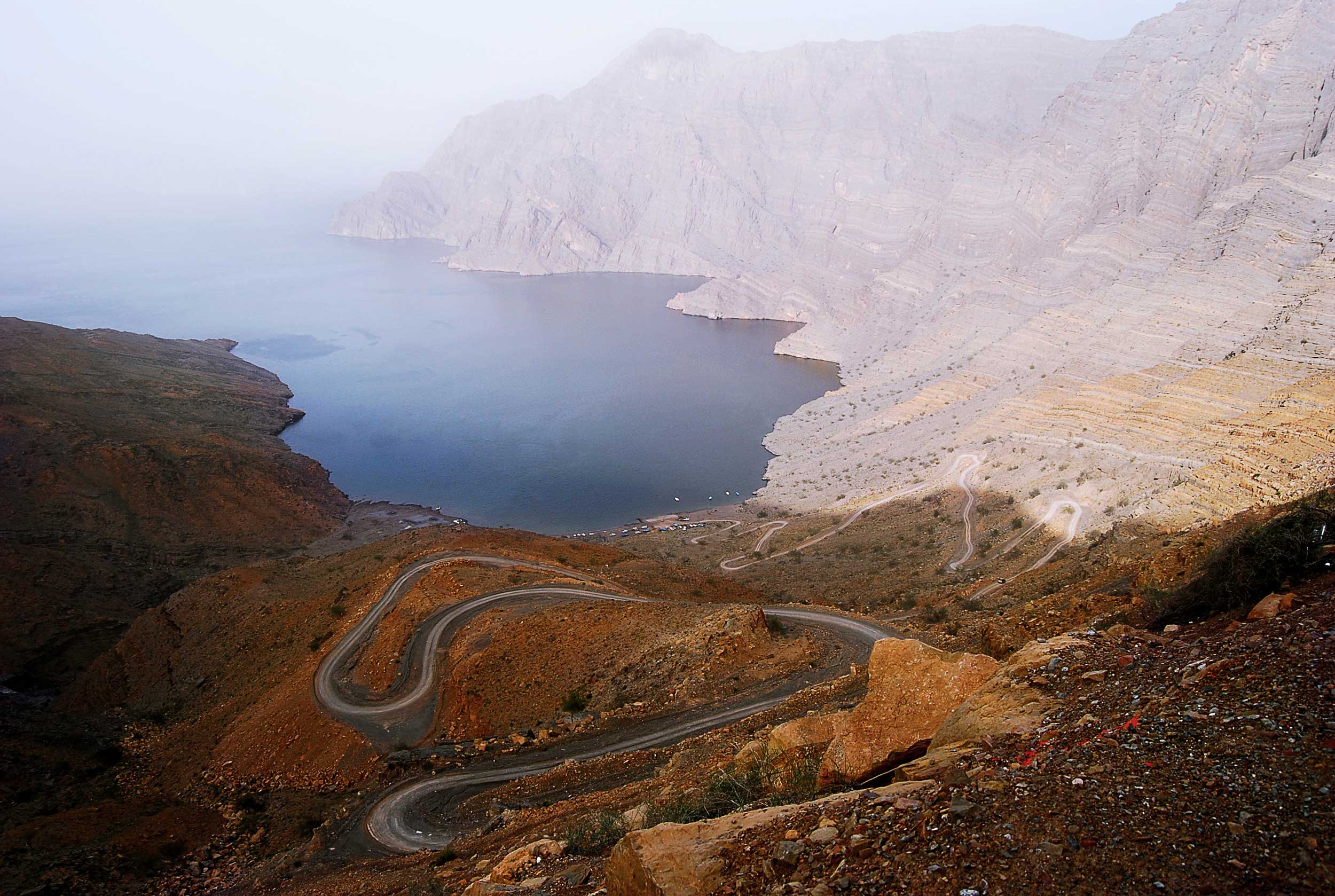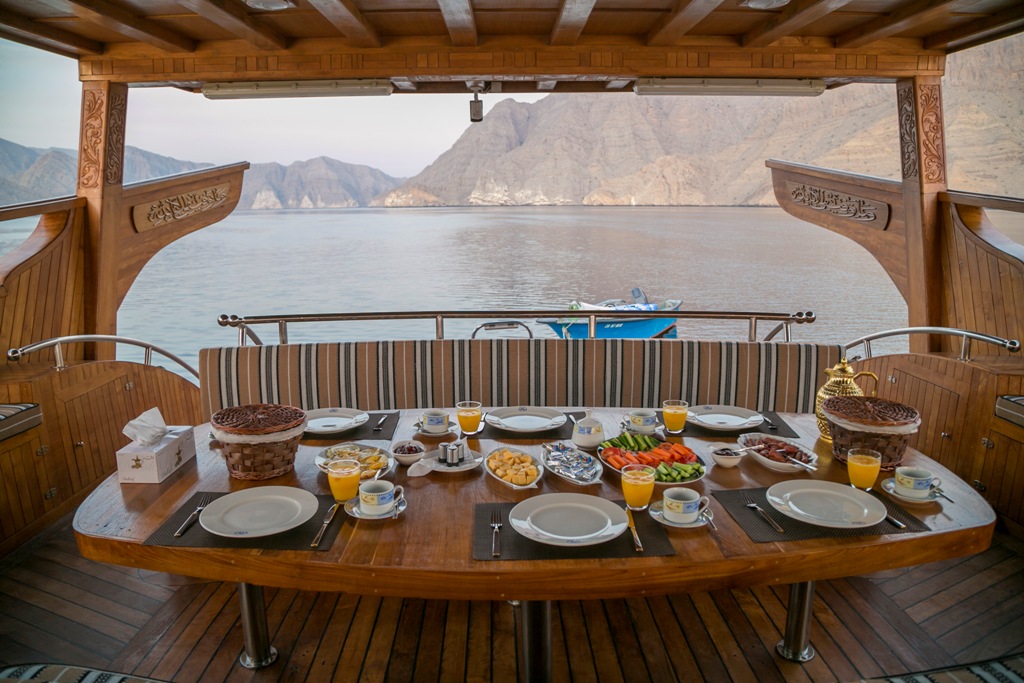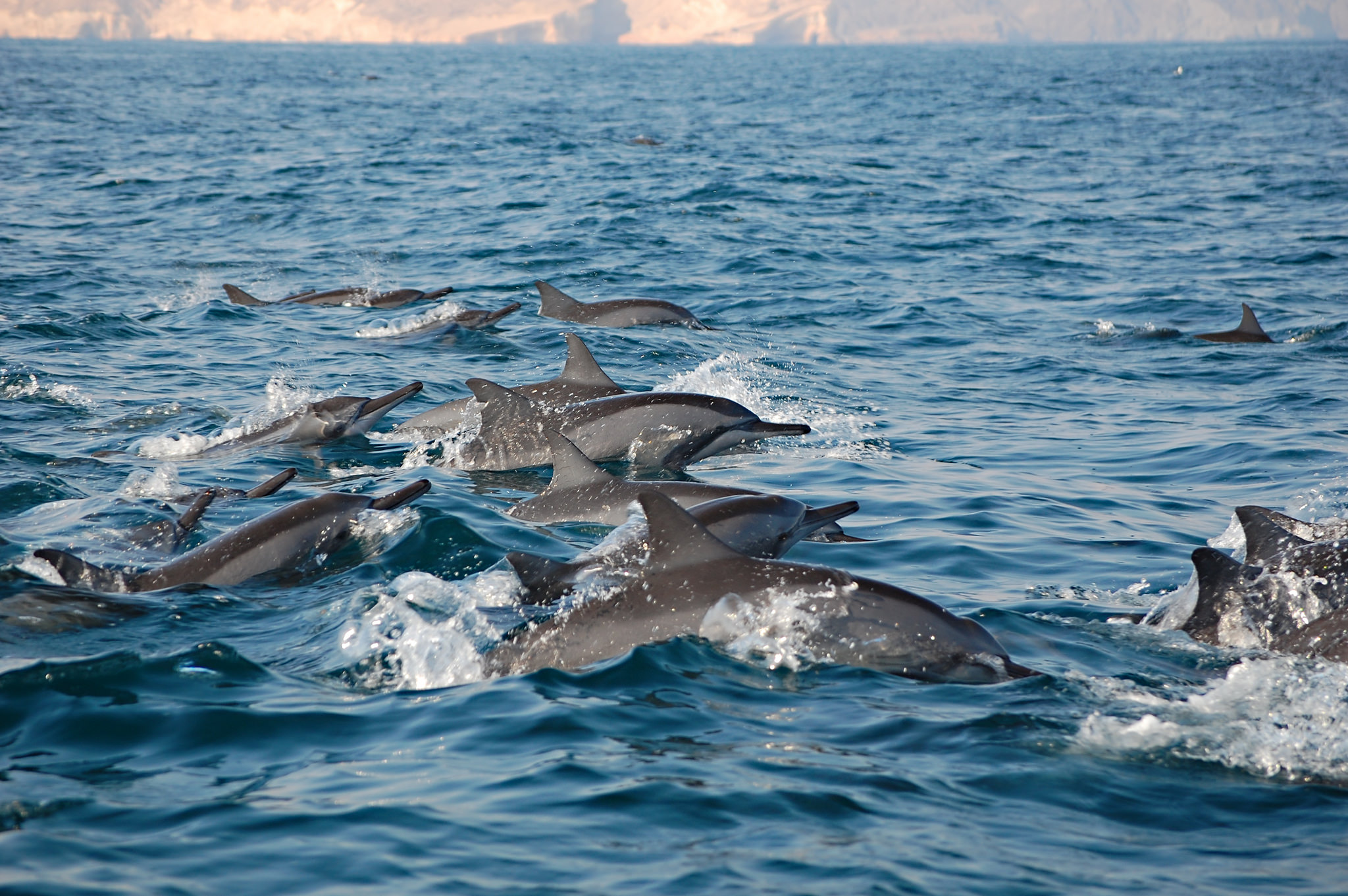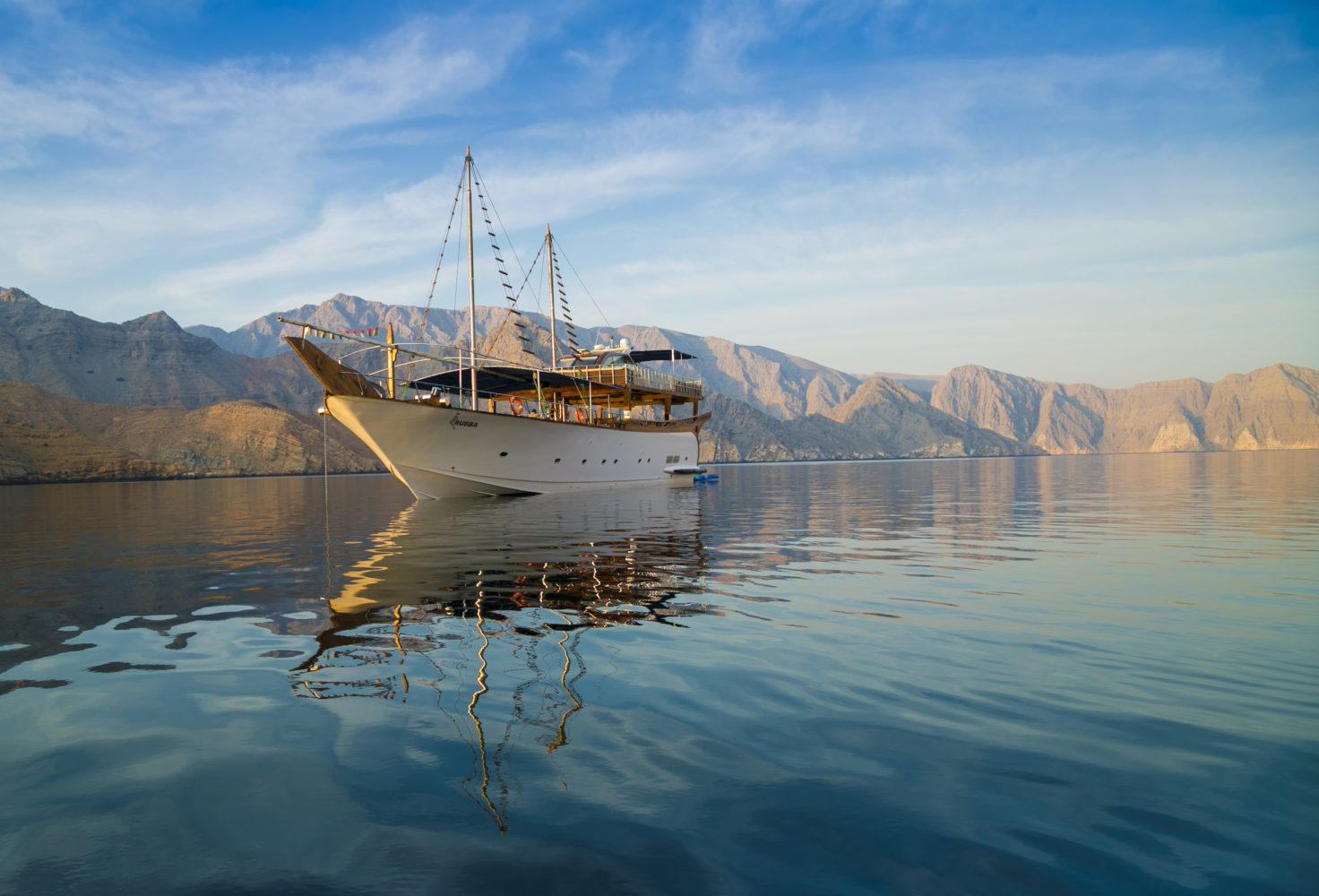Stopover in the Sounds of Khasab
As we wind along the Khasab coastal road, we pass an oasis of palm groves and villages where man-made stone walls complement the layers of rock, before pulling to an abrupt stop. Having been collected from the Dubai airport at 6am and escorted to the tip of Oman’s Musandam Peninsula — napping most of the way — it feels as if I’ve been whisked away into another world.
Musandam Peninsula, a protruding landmass flanked by United Arab Emirates to the west and Oman to the east, is just a few hours’ drive from glittering Dubai. The draw here is Khor Sham, a 16-kilometre-long fjord which has earned Khasab the nickname ‘the Norway of Arabia’. We board one of Musandam Sea Adventure’s traditional wooden dhows, which is furnished with large, comfortable cushions and rugs. Sipping tea and snacking on fresh fruit provided by the gracious Mohamed, we skim the coast towards the entrance to the khor. The contrast of the arid landforms and the deep blue sea of the Arabian Gulf is spectacular — and this is only the beginning.

We pass small villages within the fjord, populated by between 50 and 150 people and only accessible by boat. Stone houses dot the hillside and fishing boats bob in the water. Steps are cut into the rock, and an old sofa creates an outdoor living room with an incredible view. Most of the villagers are fishermen, and the children travel by boat to school in Khasab every Saturday, returning home on Wednesday. Stripes of brown start to show in the fascinating mountains, but all other attractions are abandoned as we turn our attention to the marine visitor who has joined us alongside the dhow. A ripple of excitement overtakes the group as a dolphin slices through the shining water, accompanying us deeper into the khor.
We pause by Telegraph Island, which was named after the telegraph station built here in 1864 by the British to support communications between England and its then colony, India. This was quite an undertaking, requiring an underwater cable to run from India to Iraq, with Musandam the midway point. Now, the island is more famous for its coral reef. We jump into the clear, cold water, which somehow feels thicker than normal. Snorkels and masks are on hand to borrow, but I’m so transfixed by the landscape, I opt just to float and gape. Other dhows in the distance only add to the picturesque scene.

Towels are wrapped around us as we climb back on board for a hearty lunch. Prepared by Musandam Sea Adventure’s own chef, the homemade, seasoned fried chicken, lightly spiced vegetable curry, pita breads with hummus, and green salad is perfection. It’s all washed down with an abundant array of cold drinks happily served by Mohamed, whose mission in life is to keep us hydrated. Peace falls over the boat: a couple sits, back to back, looking out; a young girl curls up against the side; and friends soak up rays on the bow.
A jagged pile of large stone slabs are indicative of the volcanic disorder that brought about this special place, and the reflection of the mountains in the water — grey and beige rather than the green one would usually expect in a fjord — creates a surreal image. As we turn to circle back, we’re treated to another scenic view: three layers of mountains sit like layers of gauze, semi-transparent on the horizon. The afternoon light casts shadows, emphasising grooves and crags. The wind picks up as we exit the khor, and out come the fleecy blankets.

While the rest of our contingent return to port, I’m lucky enough to be transferred by speedboat to an isolated beach for dinner. Comfy cushions and carpets held down by stones are the centrepiece, surrounded by tents. Kids play badminton while their parents sip tea and chat. I learn that the families camping here are repeat visitors — and it’s definitely a spot to return to. As the sun goes down, the mountains take on warm hues, and the water reflects light blue and gold. Waves lap gently on the shore. The gold tone dials up to rose, then back to grey as the moon finally gets its chance to glow brighter, seeming even closer in the process.
Bright flames break the low light, leaping from coals, and sweet smoke wafts across the camp. The families move on to card games. This seems a place that either attracts or creates happy families: everyone engaged and well-behaved, happy to be here. A boat arrives with wood and supplies, and fluorescent lights come on as darkness cloaks the mountains. There’s a sense of anticipation on this beach, lit like a stage. We all enjoy a dinner of freshly grilled fish and chicken with pasta and salad, along with the signature pita and hummus. The campfire is lit, but soon enough it is time for me to depart.

On the way to my accommodation for the evening, we pause the boat and swish our hands through the water, noticing the reflections of the moon and stars. Our wake is a great fluorescent swathe and the villages are beacons of light at the base of the dark hills as we make our way toward our own home for the night, the luxury yacht Rubba. With six ensuite cabins, it can accommodate 12 below deck, and 30 on deck under the stars. I fall asleep quickly in my plush cabin, listening to the waves and marvelling at my good fortune. On waking, I immediately clamber to the porthole to find the mountains exactly where I left them, silhouetted against an orange sky.
Over breakfast, I have the chance to speak with Musandam Sea Adventure’s founder Abdulfattah Ahmed Al Shehhi, who created Rubba. Having come from a fishing family, he always admired the dhows out on the water, until he was eventually able to afford one of his own in the early 90s. The first was old but proud — and is still going strong among his fleet of five. By 2013, it was time to fulfil another lifelong dream. Abdulfattah and his wife Aziza shopped around the usual boat builders, but found their ‘cookie cutter’ designs didn’t fit the bill. Eventually, they landed on a local producer who immediately understood their vision of marrying modern and traditional design. With carved accents of teak — the result of three months of Indian craftwork — and the swoop of the bow echoing the slope of the mountains, the vessel merges the form of a dhow with the opulence of a modern yacht.

As we head back to port, passengers in passing dhows, envious of our luxury means of transport, wave and take photos. Exiting the khor, a small pod of dolphins pops up to say farewell. As we set off back to Dubai, the curve of the road and the dramatic landscape now fondly familiar, I’m reminded of something Aziza told me: Musandam is not just a place that is seen, but deeply felt. She was right: I feel extremely fortunate to have had the privilege of experiencing such a special part of the world, in large part due to the efforts of Musandam Sea Adventure’s true hospitality. As stopovers go, this has been a destination unto itself.
Dominique was a guest of Musandam Sea Adventure.

